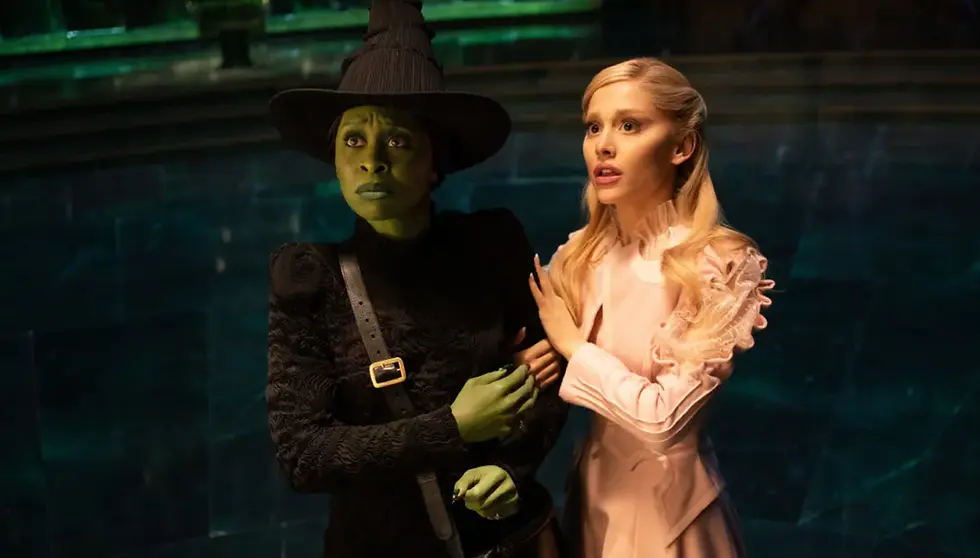Standing at the Sky's Edge - Crucible Theatre Sheffield
- comaweng
- Mar 24, 2019
- 4 min read

Regular readers are probably tired by now of me saying that it should be possible to walk into a show, and not know anything about it, and come out with at least a general understanding of the proceedings in that production. But that’s exactly what happened the first time I came up to South Yorkshire to see a show in Sheffield that was made in Sheffield, and what a West End success Everybody’s Talking About Jamie turned out to be. I don’t think Standing At The Sky’s Edge could necessarily replicate that kind of commercial success – for one thing, it’s more reflective than celebratory (though not entirely without hope), and if I’m brutally honest, it’s one of those shows that takes a while to get going.
It’s a play with songs, rather than a book musical, and while the songs emphasise certain aspects of this intergenerational storyline, it’s as if the plot freezes so the audience can enjoy some music. Richard Hawley’s tunes, though sometimes quite lyrically dense, can also be too repetitive – too often the last line of a song is sung over and over again. I understand the need for dramatic emphasis, but it’s overdone to the point where it starts to lose its intended impact. Will Stuart leads a seven-piece band through a mixed range of tunes, featuring anything from a soloist to the full adult cast of fourteen plus the Sheffield People’s Theatre, another fourteen voices. SPT as a whole is larger than this, encompassing all sorts of theatre functions, both on and off-stage.
The show is essentially about the inhabitants of Park Hill, a council housing estate very close to Sheffield railway station, and thus within reasonable distance of the Crucible Theatre itself. Park Hill predates the Crucible by a decade, the former being opened in 1961 by Hugh Gaitskell (1906-1963), the then Leader of the Opposition. I wasn’t initially keen at all on this production during its first three scenes, set in 1960, 1989 and 2016, with characters introduced quite fleetingly. Oh joy! Another one of those shows made unnecessarily complicated by flitting between generations because it’s currently fashionable to disregard linear, chronological storytelling.
Visible on stage for this production as soon as members of the audience file in is a sign reading “I love you will u marry me”, recognisable to locals as a handwritten plea that was never painted over once it appeared at some point in 2001. A decade later, it became a neon sign on the estate. The actual story behind that unconventional proposal isn’t covered here: while the characters in the play are all fictional, their stories are both recognisable and convincing. So many plays are still entirely about the upper and middle classes, or otherwise there are working class characters that are, at best, like Arthur Kipps in Half A Sixpence: very pleasant but also rather dim. Not here: this reflects the working classes at their most raw and most honest.
Grace (Deborah Tracey) and her niece Joy (Faith Omole) are spoken down to, as if their command of English is deficient, the former by a Housing Officer (Louis Gaunt) who introduces them to their new home and its miscellaneous mod-cons, the latter by Jimmy (Adam Hugill), who fends off Joy from a couple of local bullies. Poppy (Alex Young) also moves into the area, having bought a place (or what she cals a “split-level duplex”) at Park Hill. I do hope the Sheffield locals don’t think all Londoners are like her, ordering from Ocado (something I have never, ever done) and being generally rather pretentious.
Nikki (Maimuna Memon) and Adam Hugill (Jimmy) were the stand-outs for me, putting in stunning performances in solo musical numbers (Nikki’s ‘Open Up Your Door’ being particularly memorable), but there wasn’t anyone in this cast that I didn’t enjoy hearing from. A lot of topics come up: Harry (Robert Lonsdale) starts off as a young man with ambition but is later hit hard by the Thatcher reforms. The Iron Lady is loved in some quarters down south but, watching this show, it’s easy to understand why parts of the north are so staunchly anti-Conservative to this day. (No, the show doesn’t indulge in Tory-bashing.) Joy has initial trouble getting her head around Yorkshire dialect, whilst displaying a stroppy attitude that is nonetheless commensurate with being a teenager. There’s more than one same-sex relationship going on. The estate itself falls into a state of general disrepair.
The stage, too, is sometimes ridiculously busy. Being a flexible theatre space, the Crucible for this production has several entry/exit points for the cast, and some of the choreography (Lynne Page) has involves walking onto the stage from a given point and exiting from another. In the most dramatic scene, in the closing moments, the reasoning behind having so much activity couldn’t be clearer, but in other places, it’s too distracting and serves no narrative purpose. Like Jamie, Sky’s Edge has some punchlines in it that are best understood by Sheffield audiences (Jamie New’s “Homework is so boring, I’d rather be watching the snooker” brought the house down at the Crucible, home of the Snooker World Championship, but never raises even a titter on Shaftesbury Avenue). It’s inept in places, but goodness me, it’s so very genuine and sincere. A beautiful, haunting and heartfelt production.
Four stars
At Crucible Theatre Sheffield, until 6 April 2019.




Comments